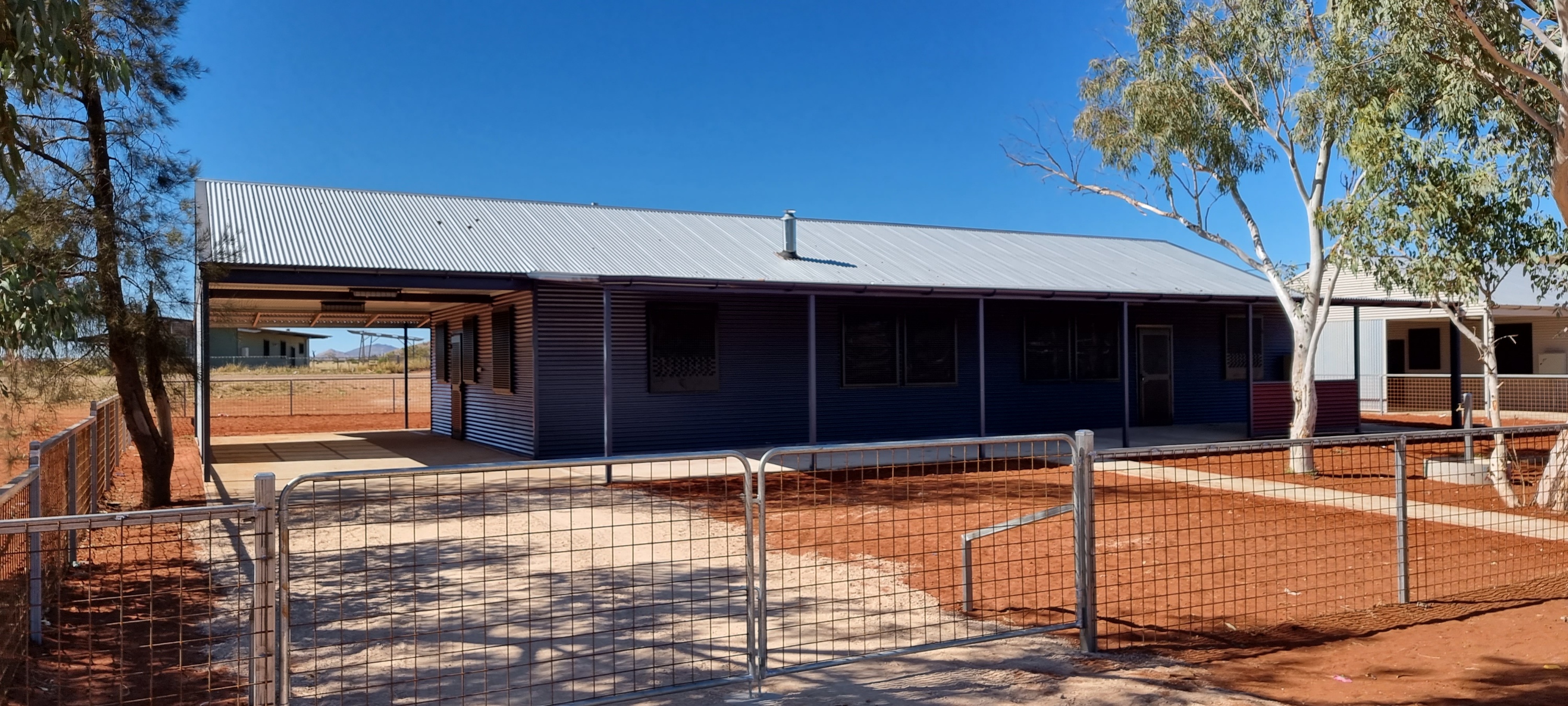05 December 2023

Aboriginal community housing in South Australia’s remote APY Lands will be retrofitted in an innovative pilot project to improve energy efficiency, living conditions and health in the harsh and variable desert climate.
Starting this month, the University of South Australia (UniSA) will collaborate with the SA Department for Energy and Mining, the SA Housing Authority and industry partners on the project.
Led by UniSA with support from RACE for 2030 CRC, the partners will work with the APY community in Indulkana to modify a small group of houses, providing a framework for energy efficient upgrades across the remainder of the APY Lands, as well as other remote areas across Australia.
Summer temperatures in the APY Lands typically exceed 40 degrees and can reach as high as 50 degrees Celsius in the height of summer. In winter, it can drop below freezing overnight. Housing quality is variable, with degraded insulation and gaps in doors and windows making homes very cold in winter.
UniSA researcher and project leader Associate Professor Ke Xing says that while Aboriginal people have lived on harsh desert lands for tens of thousands of years, temperature extremes and associated severe thermal stresses have become more pronounced.
“With broader climate extremes and overall hotter summers predicted for the future, how people are living and maintaining healthy communities in these remote regions is of growing concern,” Assoc Prof Xing says.
“Retrofitting their homes to make them more energy efficient and comfortable is the obvious solution, but there are many challenges associated with this.
“Standard retrofit solutions are not suitable for the APY Lands due to environmental issues, and materials need to be sourced easily due to the distance from major cities.”
Labour costs in remote regions can be double that of metro areas, and because any repairs need to be carried out by local workers, affordable retrofit solutions are required.
The dry, dusty conditions and mineralised water can also interfere with some electronic and mechanical systems, as well as compacting insulation.
A final report is due in October 2025.
Quotes attributable to the Minister for Energy and Mining, the Hon Tom Koutsantonis MP
“Our state’s far north will be a valuable testbed for how Australian houses can be better adapted to Australia’s harsh climate.
This project will identify how retrofits for energy efficiency can be tailored to the needs of the people living in them, while advancing technologies that could help decarbonise the economy.
As climate change accelerates and our energy mix changes, the need for solutions will become more urgent, and I’m proud that South Australia continues to lead the race for those solutions.”
Quotes attributable to the Minister for Human Services, the Hon Natalie Cook MP
“The RACE 2030 project is a great example of government working with industry and research partners to adapt housing to climate change.
We know our weather is becoming more extreme. That means for places like Indulkana and other communities in our state’s north, there are more days when temperatures can reach 50 C and above in summer, as well as freezing nights in winter. This means it’s important that we improve liveability for tenants - one of the goals in the SA Housing Authority’s Asset Strategy.
The research undertaken from this project has the opportunity to benefit all South Australians living in regional and remote communities.”
Notes to editors
The RACE for 2030 CRC is an industry led cooperative research centre established in 2020 with $68.5 million of Federal Government funding.
The pilot is supported by several government agencies and industry groups, including Aboriginal Affairs and Reconciliation, PowerTech Energy, the Insulation Council of Australia and New Zealand, Healthabitat, CodeSafe Solutions, Pointsbuild, Allied Insulation Industry Coalition and Air Tightness Testing and Measurement Association (ATTMA). APY community groups will work closely with the partners.
Media contacts:
UniSA: Candy Gibson M: 0434 605 142 E: candy.gibson@unisa.edu.au
DEM: Amy Penman W: 08 8429 2750 E: amy.penman2@sa.gov.au



